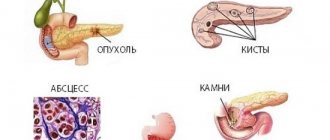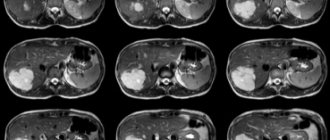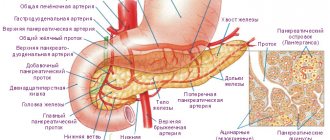Psychosomatics - what is it?
You can start by explaining the meaning of the word “psychosomatics”. It is translated from Greek as “body” and “soul”. Psychosomatics is a field partly of medicine, partly of psychology, which studies the connection between a person’s physical state and his emotional state. Psychosomatic diseases define those pathologies, the reason for the development of which lies in the presence of emotional experiences and stress. This does not mean that the disease is far-fetched or made up, these are diseases that did not develop as a result of viruses or bacteria entering the body, not due to a decline in immunity, the reason is much deeper.
It is known that the emotional background and personality type of the patient greatly affect the development of real diseases.
With frequent relapses and in the absence of real results with conservative treatment, the cause of the disease should be sought in psychosomatics. Having suspected the psychosomatic nature of the disease, the doctor may advise the patient to see a psychotherapist or find out the psychological causes of the disease on their own.
Without identifying the psychological causes of the disease, their elimination will be ineffective or ineffective at all.
Treatment
In case of inflammation of the pancreas, in no case should everything be attributed solely to psychosomatics. Pancreatic diseases must be treated. First of all, you need to consult a general practitioner.
After this, you need to undergo a series of diagnostic examinations and pass the necessary tests. If inflammation of the pancreas and the psychosomatics of the disease are put on hold, we are talking about hospitalization of the patient.
In order for the chronic form of pancreatitis of a psychosomatic nature not to manifest itself, it is necessary:
- seek help from a psychologist who specializes in psychosomatic diseases;
- undergo acupuncture and speleotherapy - methods that can be very effective;
- contacting a psychotherapist (in addition to psychological ways to solve the problem, he will prescribe a number of medications, including antidepressants).
Psychosomatics of the pancreas
To reveal the concept of pancreatic psychosomatics, we must remember that it takes part in the digestion of food, or rather, contributes to the completion of the digestive process. Pancreatic enzymes break down nutrients into fats, proteins, and carbohydrates. According to Liz Burbo and Louise Hay, digesting food means “digesting” the information a person receives from the outside world.
It turns out that the work of the pancreas on the metaphysical plane means the division of informational food: laying out knowledge, emotions separately and acquiring conclusions.
The psychosomatics of pancreatitis has a direct connection with the malfunction of this first metaphysical function of the gland. In addition, the organ itself is located in the zone that is responsible for the sphere of human emotions.
Another function of the pancreas is the synthesis of insulin, which is responsible for the amount of sugar in the blood, helps to determine the psychosomatic causes of diabetes: it shows how the patient perceives the sweets (sugar) of life.
The first form of diabetes, in which the immune system self-destructs cells, speaks of an internal struggle (in the human soul). Such a person usually has a weak will, is not able to control his weaknesses and desires, and indulges them too much (external control is required).
The second form of diabetes (it often affects older patients) means that a person does not feel the joys of life, does not know how to see them, is not able to enjoy life, since he is convinced that there are no more joys.
It turns out that the psychosomatics of the disease explains this pathological process as a result of the patient’s experiences, his internal struggle, self-flagellation, and accumulated anger. Systematic suppression of emotions in oneself and lack of love lead to inflammatory processes in the pancreas tissues and a failure in the synthesis of enzymes.
Obesity, as a process that provoked the occurrence of pancreatitis, is explained by the presence of problems in various areas of life and the desire to “eat” them. Junk food “hits” the pancreas, contributing to the deterioration of its function.
In addition to “seizing,” many people “drown this kind of trouble in a glass.” Alcoholism is also a psychological problem. Drinking alcoholic beverages negatively affects the condition of the pancreas. Under the influence of alcohol, scarring occurs in the vascular tissue of the pancreas, which leads to a decrease in the quality of blood circulation and a disruption in the supply of nutrients and oxygen to the organ. Drinking alcohol can lead to spasm of the sphincter of Oddi, which is located at the point where the gland duct enters the duodenum. Pancreatic juice stagnates due to spasm in the gland, which contributes to its “self-digestion” and destruction.
Passive lifestyle. People with prolonged depression, bad mood, and emotional distress rarely go for walks or play sports. Lack of normal physical activity leads to stagnation of fluids in the secretory organs and an inflammatory process in the gland.
In addition, the brain is responsible for the production of hormones that regulate the functioning of the gland. A person who is stressed or in a state of despondency may experience disruption of this process.
Causes
There is no person who does not worry about something, does not get upset, does not struggle with a bad mood, and does not participate, even indirectly, in various conflicts. People constantly interact with each other and at the same time strive to maintain internal balance, which would ensure an optimal level of vital activity of the body and the best condition of internal organs.
But this is not always possible. On the one hand, existence in society and daily social relationships, which are often imperfect, constantly “unsettle” and upset the internal balance. On the other hand, a person cannot live alone, completely isolated from society; From such a lifestyle, both the psyche and internal organs begin to suffer. Therefore, it is important to be able to build your relationships both in the family and in the work team so that neither your own body nor the people around you suffer.
Not every person can do this. There will always be some external or internal factor that will be obvious or hidden, but which greatly influences psychological balance. And it, in turn, will determine the functioning of internal organs, in particular the pancreas. Timely detection and awareness by the patient of the presence of such a factor and its destructive effect on the body will be of the same critical importance as, for example, identifying a harmful bacterial agent. On the other hand, “isolating” the psychosomatic aspect of pathology will provide an effective weapon to combat it, since it is the awareness of this problem that is the very first and most significant step on the path to recovery.
Prolonged loneliness is very harmful to health
All negative factors that determine the psychosomatics of the pancreas can be expressed as follows:
Medicines for pain in the pancreas
- conflict of an internal nature with numerous forms of manifestation (rejection of one’s appearance or gender, aspects of upbringing, divergence of desires and capabilities);
- various psychological traumas that are not completely “lived” by the patient and remain in the subconscious;
- frequent use of verbal expressions that carry a huge charge of negative force (“I don’t want to see you,” “I hate you,” “I’m tired of everything,” “It’s hard for me to bear this,” “I can’t stand this,” etc.). Over time, this negativity becomes firmly entrenched in a person and leads to the formation of diseases;
- “self-flagellation” for offenses or thoughts that seem unacceptable to a person;
- anticipation of undesirable situations and the desire to avoid them. For example, a person who is not accustomed to publicity may develop a fever, headache or stomach ache before speaking in public, simulating acute pancreatitis. If provoking situations are repeated repeatedly, then pancreatitis can develop for real.
Just one factor acting for a long time may be enough to cause pathology. At the same time, symptoms manifested from any part of the body or sensory organ can tell a specialist which internal organ has undergone a pathological process or which psychological problem is steadily increasing. For example, severe headaches mean the presence of unresolved issues and a person’s constant search for the optimal solution. Hearing loss can become a manifestation of excessive authoritarianism in a family or team, when a person does not want to hear and take into account the position of other people.
Risk groups for psychosomatics
According to psychosomatics, certain categories of people are at higher risk of pancreatitis. As a rule, these are people who cannot or do not want to bring the things they have started to completion, those who tend to grab onto everything at once.
In addition, those who try to take control of all events in life are often at increased risk. If something does not go according to plan, such a person worries and is tormented by a feeling of guilt, which leads to the development of a real disease.
The risk is high for people suffering from a lack of love or not receiving it in childhood.
According to psychosomatics, pancreatitis has its own “face,” that is, it is possible to draw a certain psychological portrait of those who are prone to pancreatic diseases. Most often, these are strong-willed, intelligent, active people who want to get a lot out of life, all the time hatching various plans and thinking about how to implement them. In addition, they want to control everything around them and try to take care of all their loved ones, blaming themselves for all problems and troubles.
But behind all such activity and hypertrophied care lies a deep sadness - these people often do not receive their share of love and affection because of their desire to appear strong and independent.
Another function of the pancreas is to complete the process of digesting food, that is, synthesizing it into fats, proteins, and carbohydrates. It turns out that pancreatitis develops in those who do not complete the process of digesting information received from the outside.
This may mean that a person thinks about everything that happens to him, but does not draw the necessary conclusions from the situations. As a result, the information is not converted into the necessary experience, loses its freshness and begins to poison the pancreas.
Factors contributing to the development of diabetes
Diabetes develops in one of two scenarios:
- First type. After damage to the pancreatic cells responsible for producing insulin, a person requires regular injections of this substance to lower blood sugar levels.
- Second type. Non-insulin-dependent pathology.
Diabetes affects people who are prone to altruism. Most patients turn out to be individuals prone to trying to fulfill many of their desires at once. They have a keenly developed sense of justice and compassion. They want every happy moment in their life to be enjoyed by everyone they know. Psychosomatics considers the unreality of desires to be the first reason for the development of diabetes. A person needs to learn to pamper only himself and say “no” to those who do not know how to distinguish kindness from weakness.
Louise Hay recommends that such people learn to love themselves and their lives. They will not be able to receive sweets from the outside until they learn to enjoy the moments that are happening at the present time. Chasing dreams and plans makes it impossible to live.
The second cause of the disease is called emotional emptiness. The emotional stress of trying to figure out a way to make others happier is often caused by a need for extra care and affection. The patient's problem is his inability to openly express his desires. Sadness due to lack of tenderness provides an emptiness that diabetes fills.
This form of pathology most often occurs in children suffering from lack of attention from their parents.
At the same time, Louise Hay points out that a lack of fatherly love much more often leads to diabetes in children.
Luule Viilma argues that pathology can develop due to repressed anger. The more often a person tries to show tact and politely remain silent in response to rudeness that is repeated with enviable consistency, the more he risks. To contain suppressed anger, the body requires the consumption of fatty and sweet foods. If he is denied this, then negative energy will fall on the pancreas, destroying its ability to control sugar metabolism. With this approach, it becomes easier to determine why obesity develops without consuming fat.
The mission is to save the world?
To reduce the manifestations of pancreatitis and eliminate attacks, you need to give up the desire to make everyone around you happy. Of course, this does not mean that you should turn into an inveterate egoist and stop worrying or caring about your loved ones, but you should not try to completely control their lives.
Also try to moderate your determination a little. Remember that in addition to the future, there is also the present, which can be no less bright and joyful if you relax and rest a little.
In general, for the pancreas to function properly, it should not be overloaded with too “fat” expectations, overly sweet desires and half-digested information, because a sense of proportion is important not only in food, but also in other areas of our lives.
The pancreas is an important organ that is involved in the process of digestion and regulation of the human endocrine system. Disruption of its functioning, including due to inflammation, is called pancreatitis. This is a serious violation that entails extremely serious consequences. Do you have an aversion to food, feel nausea and heaviness in your stomach? You urgently need to see a doctor and think about the fact that psychosomatics of the pancreas also occurs.
How to help yourself
It is necessary to carry out some kind of meditation daily. In this case, it is necessary to say, preferably out loud, the following slogan or new stereotype, as the author himself calls it. “I love and approve of myself. I myself (myself) create joy in my life. However, for the result to be truly wonderful, you should not just rely on the magical effect of the spell.
So, the role of psychosomatics in pancreatitis of the pancreas is enormous. Patients suffering from this disease should definitely analyze their psychological and emotional state or seek the help of a psychologist. If you identify all possible causes correctly, restoring your health will be much easier. Do not delay treatment, because this way you will be able to avoid many dangerous complications and significantly improve your quality of life.
Health to you!
Useful articles:
Main psychosomatic causes
The following factors can provoke pancreatitis:
- low self-esteem;
- the desire to control everything around;
- intra-family conflicts;
- guilt, shame, anger (especially suppressed).
Low self-esteem in most cases is the result of improper upbringing. People with this disorder constantly experience self-doubt, doubt their decisions, and worry about possible consequences. This condition becomes chronic, which contributes to dysfunction of the digestive system.
The desire to control the surrounding reality also constantly provokes nervous tension, since people and situations do not always obey the wishes of a particular person. Patients of this type constantly think about how certain events will develop and worry about following orders.
Among the most likely psychosomatic causes of the development of pancreatitis are intrafamily conflicts. Moreover, these can be both current problems and psychological trauma suffered in childhood. The more often conflicts arise within the family, the more likely the occurrence of pathologies of internal organs. This is explained by the gradual accumulation of nervous tension, which cannot “find” a way out. More often, this psychosomatic cause causes pancreatic diseases in the child, since the latter does not understand why the parents quarrel and is not able to influence their actions.
Intrafamily conflicts predispose people to suppress shame, anger, or guilt as they grow older. If you don't let your feelings come out, then over time it will lead to a nervous breakdown.
Experts also identify idiopathic causes of pancreatitis. In such cases, it is not possible to identify the factor that provoked inflammation of the pancreas.
It is believed that the stress a woman experiences during pregnancy is passed on to her unborn child. And he will develop pancreatitis in the future because of this. This theory has not yet found scientific confirmation.











